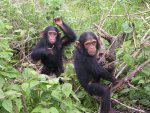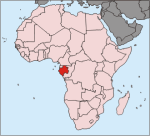For thousands of years, all around the world, wild animals have been hunted by humans for food, and Africa is no exception. Commonly known as bushmeat, the meat of wild animals has sustained human populations throughout the continent for generations with around 1 million tonnes thought to be consumed by locals every year in Central Africa alone.
Although the consumption of bushmeat in general is not illegal, the hunting and killing of species that are listed as being endangered most definitely is, with the estimates of great apes poached every year being well into the thousands. However, the trend is turning from selling these animals as bushmeat in order to expand profit margins, as more money can be made elsewhere.
Although some natives are thought to believe that eating the meat of gorillas gives them strength, and that of chimpanzees heightens intelligence, it is the growing African medicine market that is thought to be causing one of the biggest problems as demand for these animal's body parts has increased (along with the price), and therefore the profits made in this black-market trade.
According to a recent BBC report, five people have recently been arrested in connection to what has been described as the largest seize of illegal bushmeat in more than 10 years. They were captured in Gabon in Central Africa with a critically endangered species of gorilla, along with body parts from chimpanzees, leopards, elephants and a lion, all of which are thought to have been headed for the African medicine market.
Despite the fact though that many countries around the world are enforcing harsher penalties for those caught smuggling the body parts of endangered species, the dealing in illegal body parts in Gabon carries just a 6 month sentence, which is dramatically lower than the 5 year sentence for the same offence, found in other Central African countries. How long will it be before these great apes have died out completely and people have no choice but to stop hunting them?

Young Chimps

Gabon, Location

